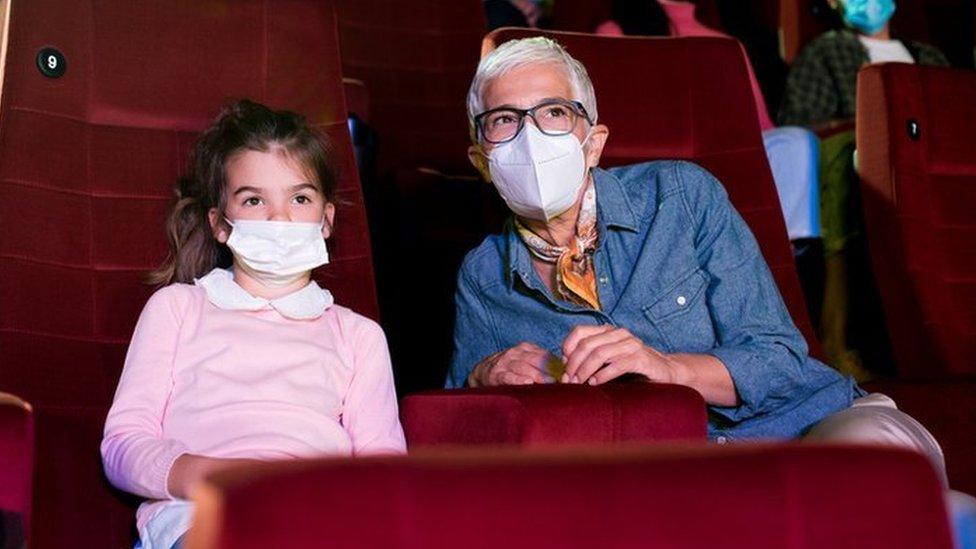Why was Scotland's vaccine passport expansion dropped?
- Published
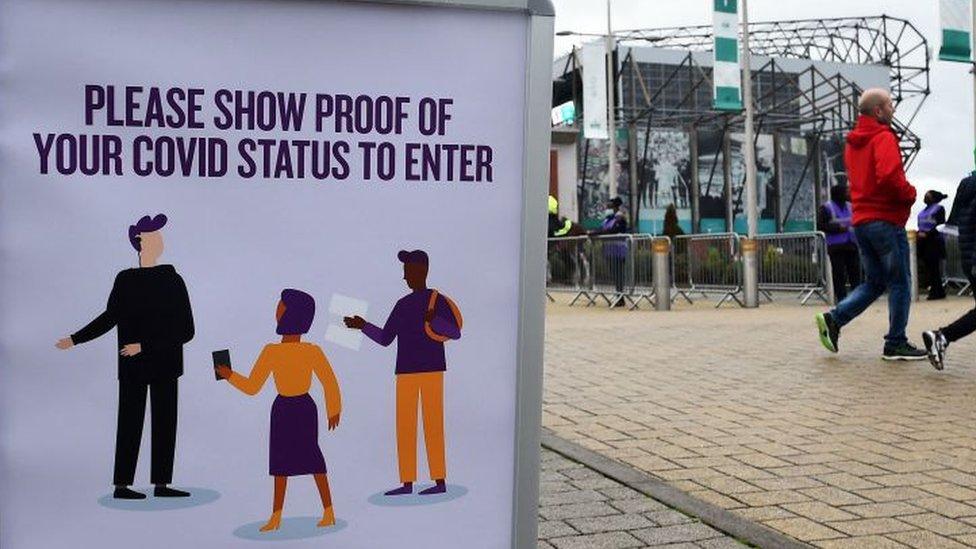
The Scottish government has decided not to expand its vaccine passport scheme to more venues, with opposition parties calling the move a "U-turn".
It had certainly seemed like the mood music was building towards an extension, with both Nicola Sturgeon and John Swinney dropping hints in parliament.
The government even published an evidence paper which suggested Scotland faced a binary choice between beefing up the scheme and imposing new lockdown-style measures.
The whole paper read like it was pitched as a justification for extension - and yet ultimately ministers decided against one, for now.
So what was it that changed their minds?

Case numbers
One straightforward reason for holding back is the situation with the virus itself. As the first minister told MSPs, "our position is definitely more positive than we might have expected it to be at this point".
When John Swinney first floated the idea of extending the scheme, and when his boss echoed this a week later, it was against a backdrop of rising case numbers. There were fears that winter could bring a fresh wave of infections which would overwhelm the NHS.
Now, however, things have swung in the other direction. While Ms Sturgeon stressed that "the threat of the pandemic is not yet behind us", case numbers have dipped slightly to a "relatively stable" position.
And while nervous glances are still being cast at European countries which have been forced to reimpose restrictions, there are suggestions that the UK may actually be comparatively well placed to ride out the winter given high levels of immunity and the swift uptake of booster jabs.
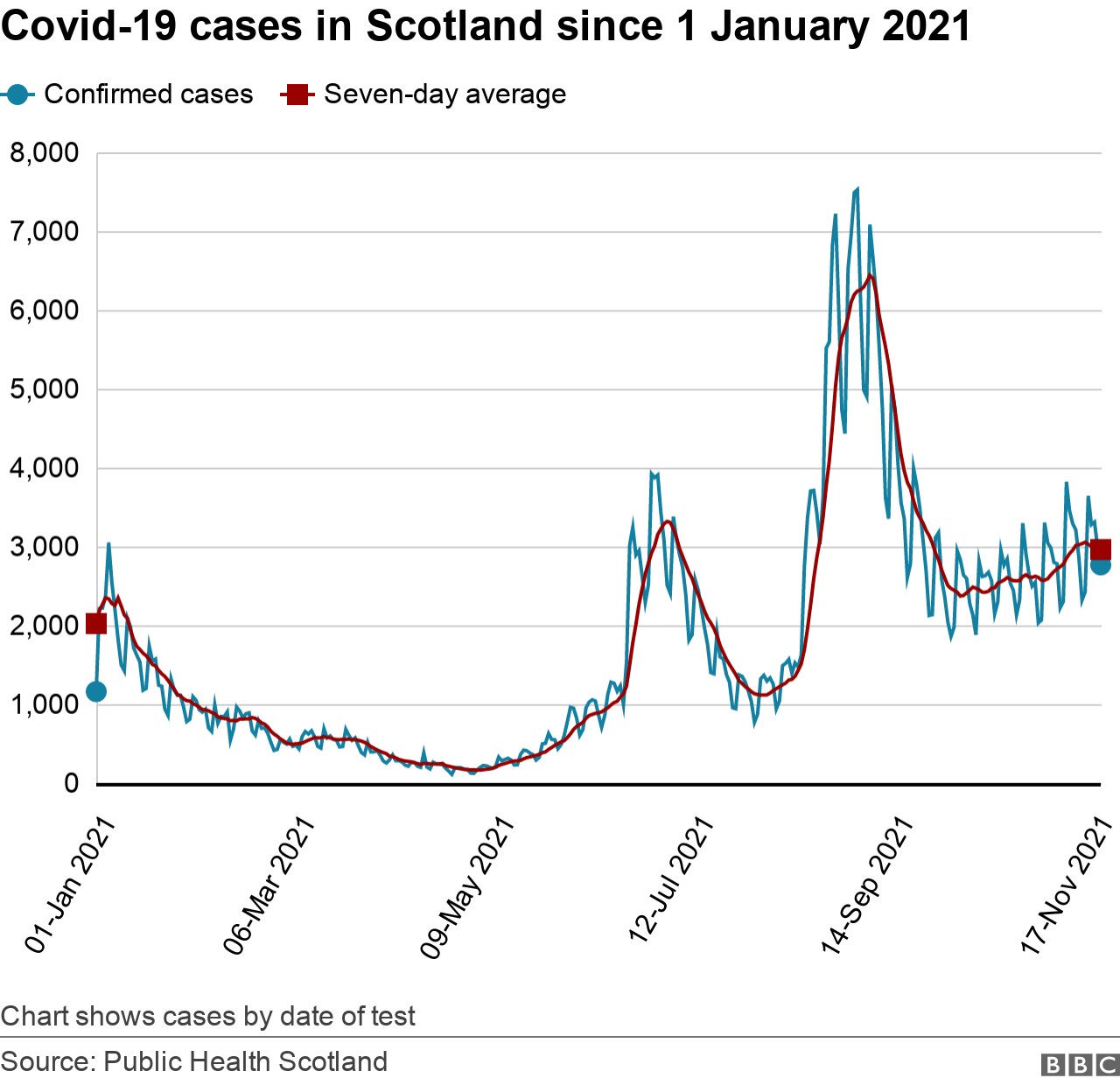
Legal issues
A key legal test of the government's Covid-19 restrictions is that they are "necessary and proportionate".
So it is perhaps notable that Ms Sturgeon used the word "proportionate" no fewer than seven times while explaining the decision to MSPs.
Adding the option of providing a negative test result would "ensure that the scheme remains proportionate", and extending it "would not be proportionate".
The original vaccine passport scheme was subject to a legal challenge, with claims from the hospitality industry that it was - you guessed it - "disproportionate". That case was ultimately thrown out, but some searching questions were asked during the proceedings.
With case numbers dropping slightly and Ms Sturgeon stating that Scotland has "the lowest infection rates and the highest vaccination rates in the UK", ministers may have feared that tightening restrictions now would be that bit more difficult to justify in court.
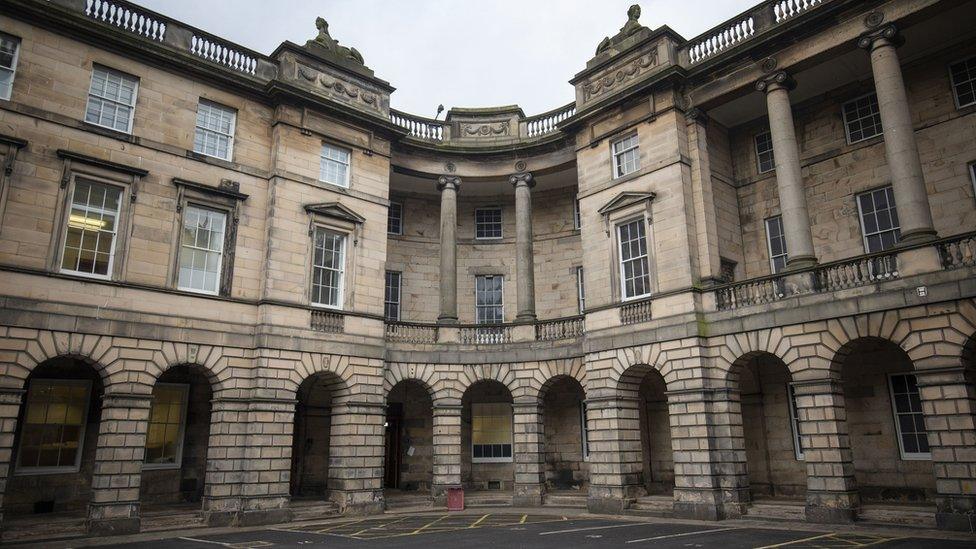
The Scottish government has already had to defend vaccine passports in the Court of Session
Industry concerns
Parts of the night-time industry had always been deeply critical of vaccine passports.
However, the concern about the latest proposals - and the potentially very broad nature of them, with ministers refusing to elaborate publicly on which "other hospitality venues" might be affected - was notably widespread.
Ministers held a series of consultations with industry groups, with Finance Secretary Kate Forbes tweeting, external moments after the Holyrood statement that there had been "a lot of meetings" with business organisations.
Based on the outpouring of relief from those very organisations, the government seems to have struggled to sell the practicalities of the plan even to groups which are normally less trenchant.
Take for example the Chambers of Commerce, who said they could be convinced to back expansion if there was "clear" evidence in favour of it - but who ultimately said they were "unconvinced at this time that the public health benefits outweigh the negatives for individuals, businesses and the economy".
The factors cited time and again were concerns about implementation costs - particularly at venues which do not normally need to employ door staff - and the timing, with many businesses banking on a strong festive period to help them bounce back from the damage of lockdown.
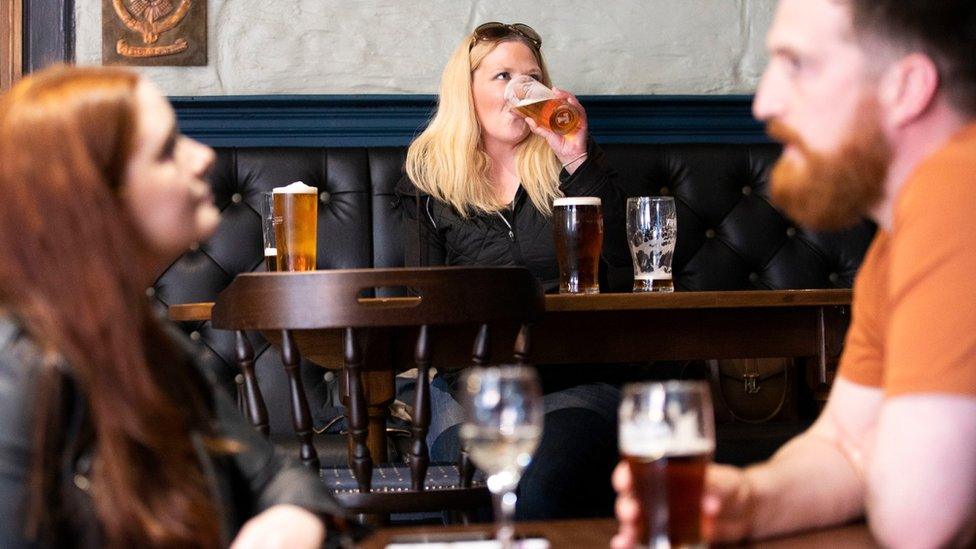
People have been urged to take a Covid test before socialising over the festive period
Political pressure
Opposition to the vaccine passport system has become reasonably predictable at Holyrood. The Conservatives argue against it while citing the concerns of business; Labour lobby for changes to include more testing, in the style of Wales; and the Lib Dems want "Covid ID cards" scrapped altogether.
All of the opposition parties voting together had failed to halt the scheme in its tracks though, and there was political cover across the UK in the form of schemes in Wales and Northern Ireland.
However, there may have been a source of political pressure inside of government.
The Scottish Greens were originally critical of vaccine passports, but were convinced of their merits shortly after signing up to a cooperation agreement with the SNP and joining the government.
For all that public harmony, their scepticism will not have gone unstated behind the scenes at St Andrew's House.
When the decision was announced on Tuesday, the Greens had flashed out a press release underlining that they had been campaigning for increased use of testing before Ms Sturgeon had even sat down.
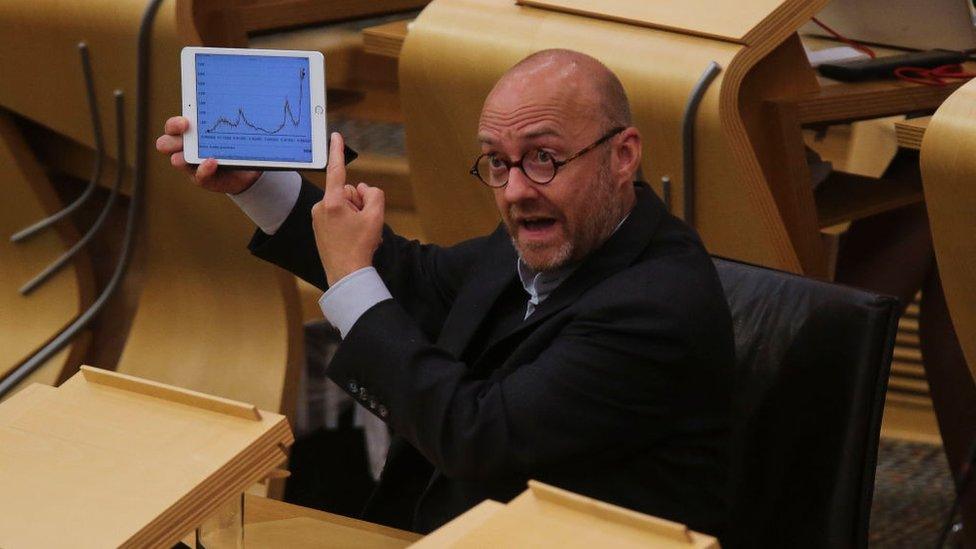
The Greens backed the government on vaccine passports when case numbers were rising
It is unlikely that this is a topic which could have sparked a full-scale Green revolt of course, as a move to vote against the government on vaccine passports would have seen their partnership fall apart just as everyone is getting their feet under the table.
But when ministers were drawing up their mental list of pros and cons about an extension, these political considerations will have played some part.
And this underlines the overall story of the decision to step back, even after the weeks of build-up and expectation. There is no one factor which will have tipped the delicate balance alone, but a whole range of them.
Related topics
- Published23 November 2021
